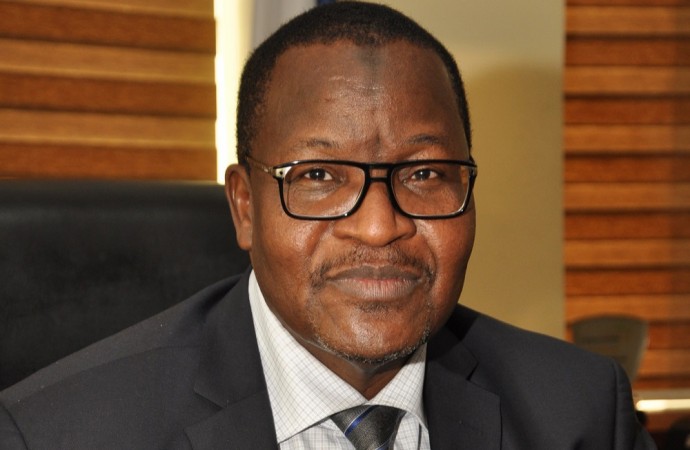The Nigerian Communications Commission (NCC) has taken its enlightenment campaign against cybercrime to Mokwa Local Government Area of Niger State, to sensitise telecommunications consumers to the rising wave of the scourge.
This is contained in a statement issued in Abuja on Thursday by Mr Nnamdi Nwokike, NCC Director of Public Affairs.
He said that the campaign was done at the 26th Edition of the Consumer Town Hall Meeting (CTM) held in Niger State with the theme: “Mitigating Effects of Cybercrimes: The Role of Telecom Consumers”.
He explained that the commission sensitised the consumers to the threat of cybercrime, its various forms as well as measures to be taken to ensure they were protected from cyber criminals and hackers.
Mrs Felicia Onwuegbuchulam, Director, Consumer Affairs Bureau of NCC, told consumers at the forum that as broadband penetration got deeper for positive engagement and efficient economic activities, there was tendency for some Internet users to use the access for criminal and illegal activities.
She said that such criminal activities was also on the rise, thereby requiring adequate consumer education.
Represented by Alh. Bashir Idris, Head of Government & Legislative Unit of Public Affairs Department, NCC, she said that it was necessary for individual and corporate consumers of telecoms services to become aware of cybercrime trends and forms.
She said that it was also important for telecom consumers to make conscious efforts to ensure safe use of connected devices, to prevent cyber criminals from making cyberspace unsafe.
According to her, businesses and individuals in every country currently rely on Information and Communication Technology (ICT) for their day-to-day activities, where Internet is playing a key role in interconnectivity of devices.
“It is common knowledge that the use of internet has become part of telecom consumer’s daily activities whether at home, in the workplace or any social setting.
“Smartphones and other smart devices used by telecom consumers are a storehouse of data carrying sensitive information about the user, his or her family, businesses, associates and daily interaction as well as financial transaction details.
“Admittedly, the Internet touches almost all aspects of our lives as telecom consumers,” she said.
She said that the commission embarked on various initiatives to increase access to the internet for Nigerians for positive engagement.
She then explained that hackers and cyber criminals also deploy sophisticated systems to intrude into your connected devices, to perpetrate their exploitative schemes.
However, the commission’s chief consumer protector, stated that continuous consumer education and awareness remained one of the most effective ways to protect telecom consumers.
“Hence, the commission is committed to using its various outreach programmes to embark on series of awareness campaigns, to keep consumers well informed on the risks associated with being online.
“Enlightening them on safety measures to be taken once they use connected devices as simple as feature phones, smartphones and other more sophisticated Internet-enabled devices,” she added.
The statement also said that Alhaji Ismail Adedigba, Head, Information & Reference Unit, Consumer Affairs Bureau of NCC, revealed that the commission was in the process of establishing an Internet Industry Code of Practice.
He said that the objective of the Industry Code of Practice was to provide a robust framework to sanitise the cyber space for telecom consumers.
Mr Jibe Abdul-Aziz, representative of a consumer advocacy group, Wheel of Hope, in his lead paper, enlightened consumers on forms of cybercrime such as phishing scams, online scams.
Abdul-Aziz also enlightened the consumers on hacking, malware, and child soliciting & abuse and identity theft among others, while educating them on safety tips.
According to him, the safety measures needed to be taken by the consumers should not be limited to outright deleting of suspicious scam emails or text messages but should include using strong passwords, using trusted software and keeping it updated.
“Talking to children about internet fraud, reporting cases of lost Subscriber Identity Module (SIM) card to service providers and respective banks, among others.
Representatives of telecoms operators also took time to enlighten their consumers on efforts being made by them and role expected to be played by consumers to ensure safety when online on their various networks.
The Commission also educated consumers on other Consumer-centric industry issues, such as the NCC toll-free line -622, Do-Not-Disturb (DND) 2442 Code, consumer complaints management.
They also talked about other industry issues such as base stations and health concerns, pre-registered SIMs, Mobile Number Portability (MNP), among others.


